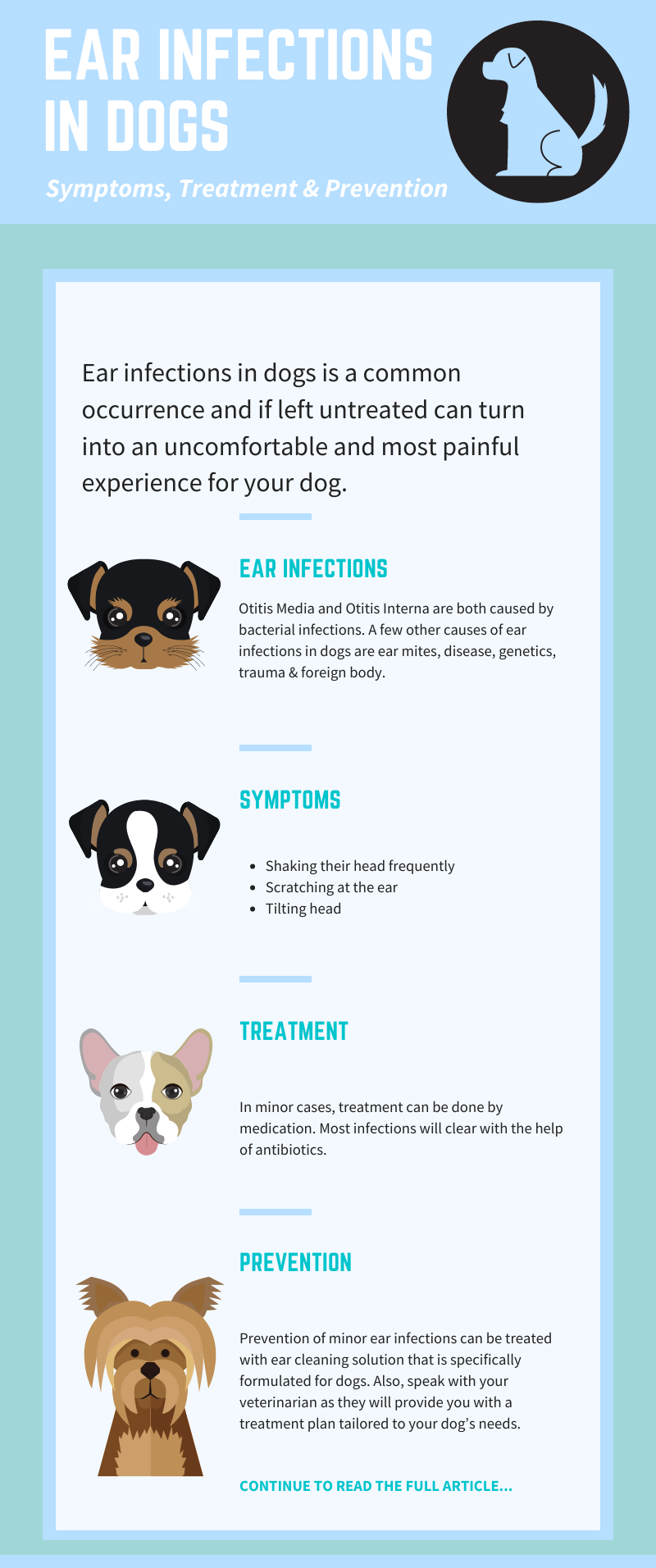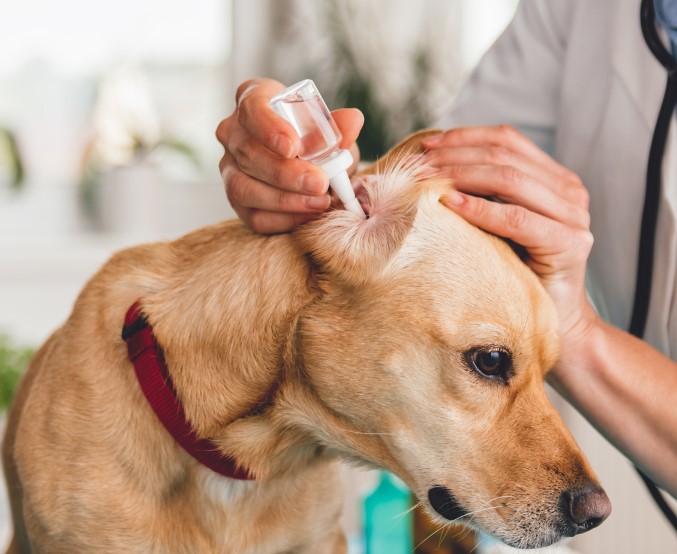
Did you know many ear problems in dogs are caused by pet food? This may or may not be the case if your dog currently has an ear infection, but it’s always something you should consider.
What’s in your dog food? Wheat..? Cereals..? Food colourings or artificial preservatives..? Do you know?
Ear infections can also be caused by bacteria, disease, ear mites, genetics, and more. Breeds with floppy ears, such as Dachshunds and Cavoodles are more prone.
What should you do when you suspect your dog has an ear infection?
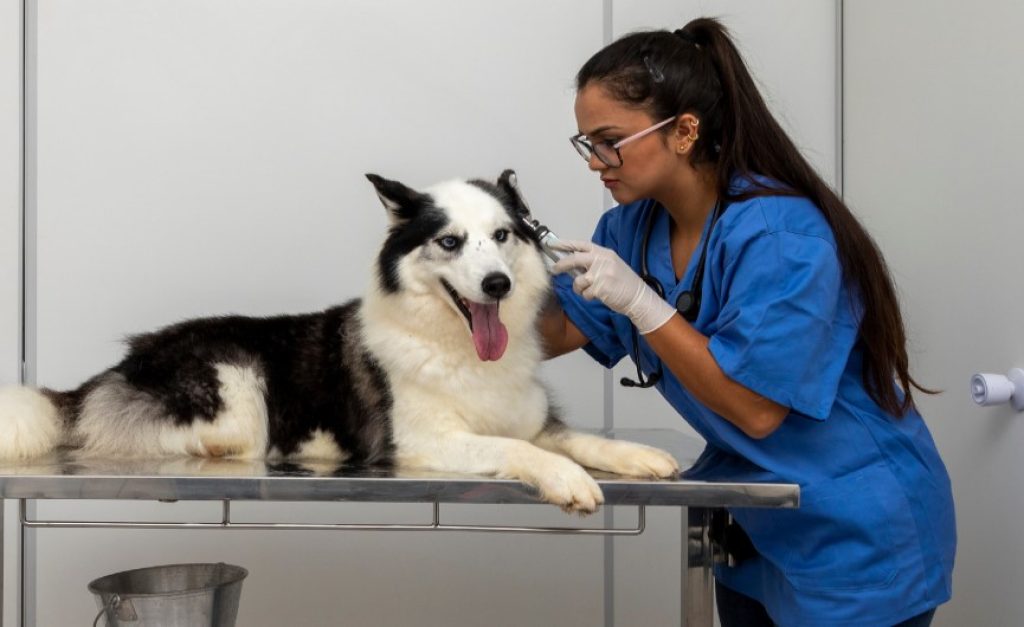
The purpose of this guide is to recognise the symptoms of a possible ear infection in your dog, along with treatment & prevention.
Ear infections in dogs are surprisingly common, but you should always take them seriously. Left untreated, an ear infection can easily become very uncomfortable and very painful for your dog.
It is best to treat an ear infection immediately, seeking the help of your vet. If your dog suffers ear infections often, then this guide will also cover preventative measures – so read on!
Types of ear infections in dogs
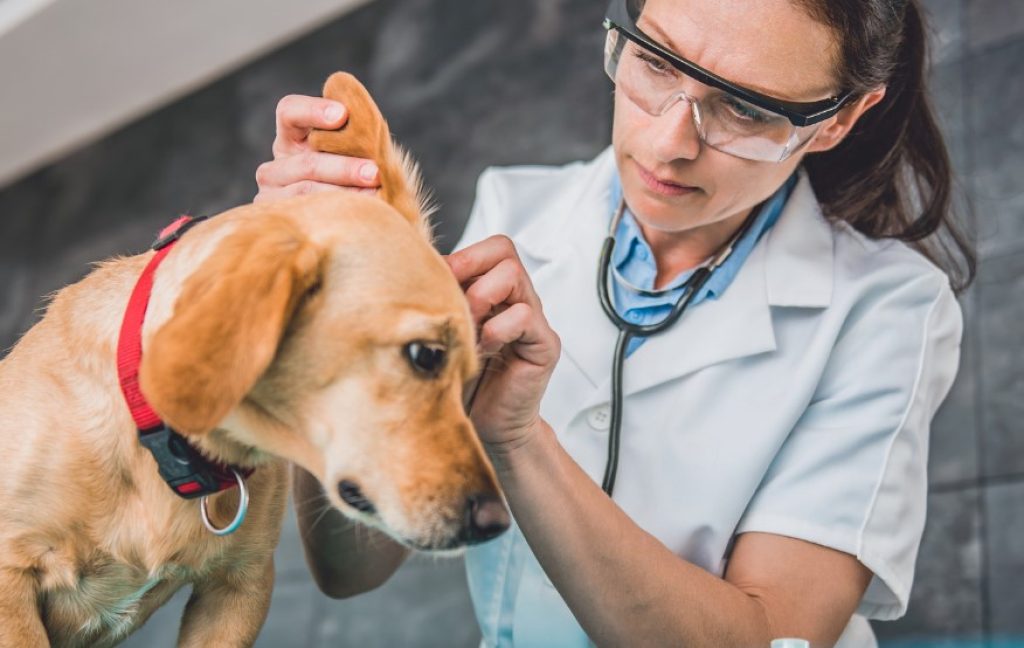
There are two general types of ear infections in dogs – otitis media and otis interna:
- Otis media – this is an inflammation of the middle ear.
- Otis interna – this is an inflammation of the inner ear.
Both types of ear infections are painful and should be treated immediately.
A common cause of ear infections in dogs is bacteria which leads to infection. Once the infection has set in the ears can become visibly inflamed and sore for your dog.
Otitis media and otitis interna are both considered bacterial infections. Other causes of ear infections in dogs are diet, ear mites, disease, genetics, trauma & foreign body.
Symptoms of ear infections in dogs
The symptoms of ear infections in dogs can vary, so be aware of the following:
- A frequent shaking of the head
- Scratching at the ear
- Tilting head
- Altered balance/uncoordinated
- Red ears
- Ear discharge
- Loss of appetite
- Vomiting
- Nausea
How your vet will diagnose the type of ear infection
Depending on the suspected ear infection, either an inner ear infection or middle ear infection, your veterinarian can perform a minor procedure.
This minor procedure involves extracting ear fluid for microscopic inspection to determine the type of bacteria and infection that is affecting your dog. This will determine the type of treatment required.
Treatment of an ear infection
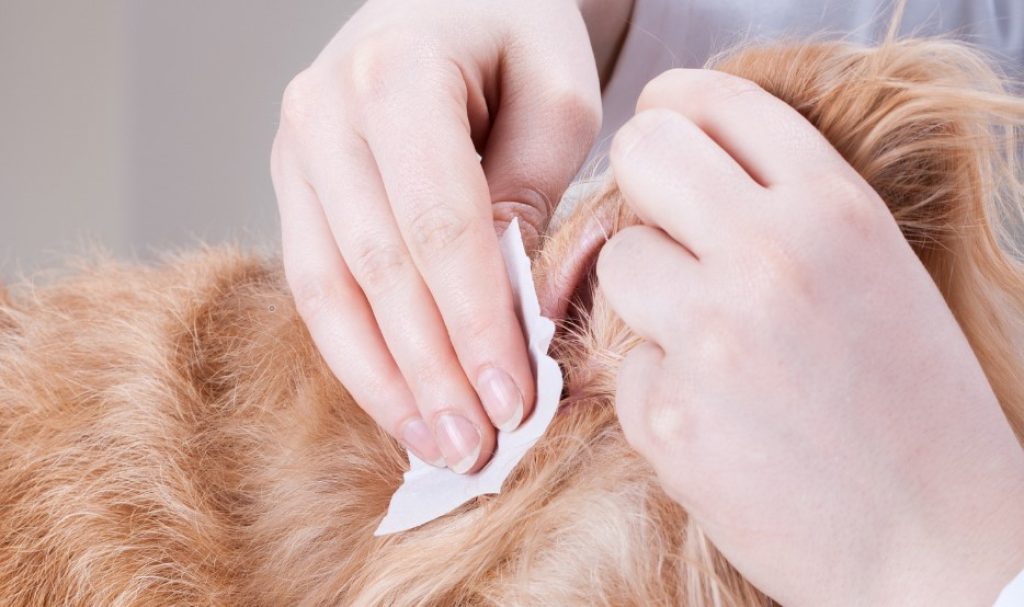
If your dog commonly suffers itchy ears, itchy skin, itchy paws, rashes, or gastrointestinal issues (including excessive flatulence), then please consider his diet, especially if feeding a dry dog food made with wheat or cereal grains (or by-products).
Related: If you don’t know what’s in your dog food, read the review.
Having an ear infection can be debilitating and very painful, and in some cases hospitalisation may be required to treat your dog.
In minor cases, treatment can be done by medication. Your vet will likely prescribe a course of antibiotics to treat a minor ear infection.
However, if you notice your dog is getting ear infections on a regular basis then surgical drainage may be required.
If those symptoms coincide with itchy skin, paws, or rashes, then also consider their diet – what are you feeding them, and what’s in it? Be very wary of dog foods made with wheat or cereals.
Some dog breeds, especially those with longer floppier ears, are more prone to ear infections due to the ears providing the perfect warm, damp breeding ground for bacteria.
How to prevent ear infections in dogs
Prevention of minor ear infections can be treated with ear cleaning solution which is specifically formulated for dogs. Ear wipes are another easy solution.
Recommended ear cleanser: Natural Animal Solutions Ear Clear.
Also, speak with your veterinarian as they will provide you with a treatment plan tailored to your dog’s needs.
Dogs that suffer from allergies are more likely to develop an ear infection because with allergies the skin can become inflamed allowing the growth of bacteria to form and cause the ear to become infected. I’ve mentioned it a couple of times above, but if your dog has a recurring ear infection then make sure you consider their dog food.
Most of us humans have had an ear infection at some point, so we know how extremely painful they can be. Make sure your dog sees a veterinarian for treatment because, and keep in mind the longer you leave an infection untreated the more serious it can become.
Routine cleaning of your dog’s ears will help reduce the risk of ear infections. Just remember to be super gentle and do not stick any cotton buds in your dog’s ear. Just use a cotton round with dog-formulated ear cleaner (follow the directions on the bottle) and pat/wipe the ear.
Over to you: Has your dog had an ear infection? What was the treatment plan?
A handy “Ear Infections in Dogs” infographic
Feel free to print or share the infographic below on Ear Infections in Dogs, but if you share please reference this page.
